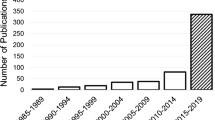Abstract
Mobile health (mHealth) apps are becoming much more widely available. As more patients learn about and download apps, clinicians are sure to face more questions about the role these apps can play in treatment. Clinicians thus need to familiarize themselves with the clinical and legal risks that apps may introduce. Regulatory rules and organizations that oversee the safety and efficacy of mHealth apps are currently fragmentary in nature and clinicians should pay special attention to categories of apps which are currently exempt from significant regulation. Uniform HIPAA protection does not apply to personal health data that are shared with apps in many contexts which creates a number of clinically relevant privacy and security concerns. Clinicians should also consider several relatively novel potential adverse clinical outcomes and liability concerns that may be relevant to specific categories of apps, including apps that target (i) medication adherence, (ii) collection of self-reported data, (iii) collection of passive data, and (iv) generation of treatment recommendations for psychotherapeutic and behavioral interventions. Considering these potential pitfalls (and disclosing them to patients as a part of obtaining informed consent) is necessary as clinicians consider incorporating apps into treatment.
Similar content being viewed by others
References
Papers of particular interest, published recently, have been highlighted as: • Of importance •• Of major importance
IMS. Patient Adoption of mHealth. 2015 2015-11-18; Available from: http://www.imshealth.com/en/thought-leadership/ims-institute/reports/patient-adoption-of-mhealth.
Firth, J., et al., Mobile phone ownership and endorsement of "mHealth" among people with psychosis: a meta-analysis of cross-sectional studies. Schizophr Bull, 2015
Torous J, Keshavan M, Gutheil T. Promise and perils of digital psychiatry. Asian J Psychiatr. 2014;10:120–2.
Torous J, Friedman R, Keshavan M. Smartphone ownership and interest in mobile applications to monitor symptoms of mental health conditions. JMIR Mhealth Uhealth. 2014;2(1):e2.
Firth J, Torous J. Smartphone apps for schizophrenia: a systematic review. JMIR Mhealth Uhealth. 2015;3(4):e102.
Torous J, Powell AC. Current research and trends in the use of smartphone applications for mood disorders. Internet Interv. 2015;2(2):169–73.
Glenn T, Monteith S. Privacy in the digital world: medical and health data outside of HIPAA protections. Curr Psychiatry Rep. 2014;16(11):494. An important review of privacy implications related to mHealth.
HHS. The Privacy Rule. 2013 2013-07-26 00:00:00.0; Available from: http://www.hhs.gov/.
Hall JL, McGraw D. For telehealth to succeed, privacy and security risks must be identified and addressed. Health Aff (Millwood). 2014;33(2):216–21.
Elenko E, Speier A, Zohar D. A regulatory framework emerges for digital medicine. Nat Biotechnol. 2015;33(7):697–702. An important overview of the current regulatory environment.
Center for Devices and Radiological Health, C.f.B.E.a.R. Search for FDA guidance documents—guidance for the content of premarket submissions for software contained in medical devices. [WebContent] 2015; Available from: http://www.fda.gov/RegulatoryInformation/Guidances/ucm089543.htm.
Health, C.f.D.a.R. Mobile medical applications—examples of MMAs that are not medical devices. [WebContent] 2015; Available from: http://www.fda.gov/MedicalDevices/DigitalHealth/MobileMedicalApplications/ucm388746.htm.
Dolan, B. US regulators remove two acne medical apps. 2011 2011-09-09 12/6/2015]; Available from: http://mobihealthnews.com/13123/us-regulators-remove-two-acne-medical-apps.
Katz, M. FTC cracks down on marketers of †œMelanoma Detection†Apps | Federal Trade Commission. 2015 12/6/2015]; Available from: https://www.ftc.gov/news-events/press-releases/2015/02/ftc-cracks-down-marketers-melanoma-detection-apps.
Lumosity to pay $2 million to settle FTC deceptive advertising charges for its †œBrain Training†Program | Federal Trade Commission. 2016; Available from: https://www.ftc.gov/news-events/press-releases/2016/01/lumosity-pay-2-million-settle-ftc-deceptive-advertising-charges.
Powell AC, Landman AB, Bates DW. In search of a few good apps. JAMA. 2014;311(18):1851–2. A viewpoint article which discusses the need for improved app review to improve app usefulness and bolster clinician and patient confidence.
Dolan B. How health, fitness device makers should approach privacy, according to CEA. 2015. 2015-10-27; Available from: http://mobihealthnews.com/48010/how-health-fitness-device-makers-should-approach-privacy-according-to-cea.
Shivley N. UCLA sued over recent hospital records hacking. 2015. Available from: http://www.latimes.com/business/la-fi-ucla-hack-lawsuit-20150811-story.html.
Zhang Y, Koch S. Mobile health apps in Sweden: what do physicians recommend? Stud Health Technol Inform. 2015;210:793–7.
Donker T et al. Smartphones for smarter delivery of mental health programs: a systematic review. J Med Internet Res. 2013;15(11):e247.
Kluge EH. Ethical and legal challenges for health telematics in a global world: telehealth and the technological imperative. Int J Med Inform. 2011;80(2):e1–5.
Schaffer A et al. Use of mental health telemetry to enhance identification and predictive value of early changes during augmentation treatment of major depression. J Clin Psychopharmacol. 2013;33(6):775–81.
Duffy J. The best fitness trackers for 2015. 2015. Available from: http://www.pcmag.com/article2/0,2817,2404445,00.asp.
Saeb S et al. Mobile phone sensor correlates of depressive symptom severity in daily-life behavior: an exploratory study. J Med Internet Res. 2015;17(7):175. Original research study showing potential predictive value of passive data (as collected by sensors) in major depression.
DHHS. State laws. 2015. Available from: http://www.ncea.aoa.gov/Library/Policy/Law/State/index.aspx.
MGL. General laws: CHAPTER 119, section 51A. 2015. Available from: https://malegislature.gov/Laws/GeneralLaws/PartI/TitleXVII/Chapter119/Section51A.
Felthous AR. Warning a potential victim of a person’s dangerousness: clinician’s duty or victim’s right? J Am Acad Psychiatry Law. 2006;34(3):338–48.
Gutheil TG, Bursztajn H, Brodsky A. Malpractice prevention through the sharing of uncertainty. Informed consent and the therapeutic alliance. N Engl J Med. 1984;311(1):49–51.
Ly KH et al. Smartphone-supported versus full behavioural activation for depression: a randomised controlled trial. PLoS One. 2015;10(5):e0126559.
Ly KH et al. Behavioural activation versus mindfulness-based guided self-help treatment administered through a smartphone application: a randomised controlled trial. BMJ Open. 2014;4(1):e003440.
Dagoo J et al. Cognitive behavior therapy versus interpersonal psychotherapy for social anxiety disorder delivered via smartphone and computer: a randomized controlled trial. J Anxiety Disord. 2014;28(4):410–7. An original study showing a 55.6 % response rate to a mobile phone-administered CBT intervention in social anxiety disorder.
Watts S et al. CBT for depression: a pilot RCT comparing mobile phone vs. computer. BMC Psychiatry. 2013;13:49.
Author information
Authors and Affiliations
Corresponding author
Ethics declarations
Conflict of Interest
The authors declare that they have no conflict of interest.
Human and Animal Rights and Informed Consent
This article does not contain any studies with human or animal subjects performed by any of the authors.
Additional information
This article is part of the Topical Collection on Psychiatry in the Digital Age
Rights and permissions
About this article
Cite this article
Armontrout, J., Torous, J., Fisher, M. et al. Mobile Mental Health: Navigating New Rules and Regulations for Digital Tools. Curr Psychiatry Rep 18, 91 (2016). https://doi.org/10.1007/s11920-016-0726-x
Published:
DOI: https://doi.org/10.1007/s11920-016-0726-x




